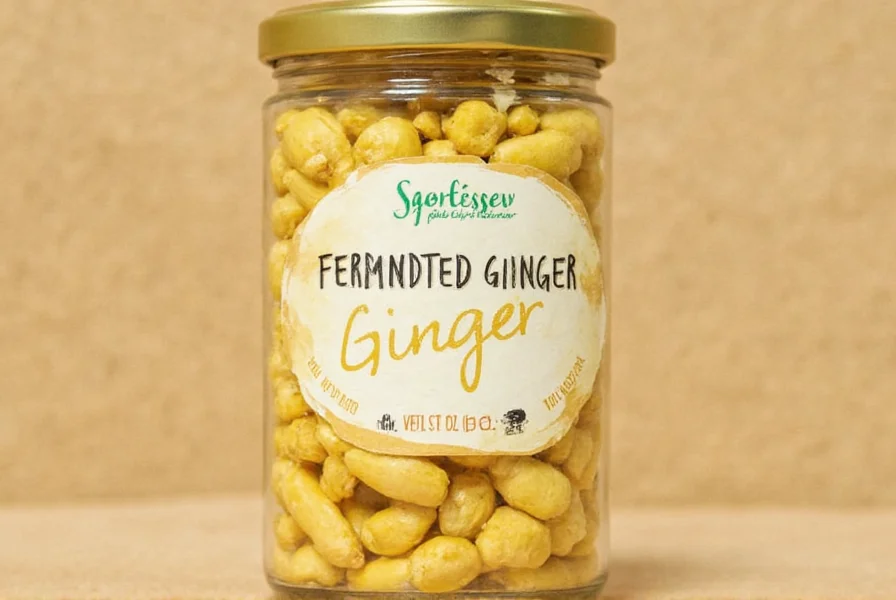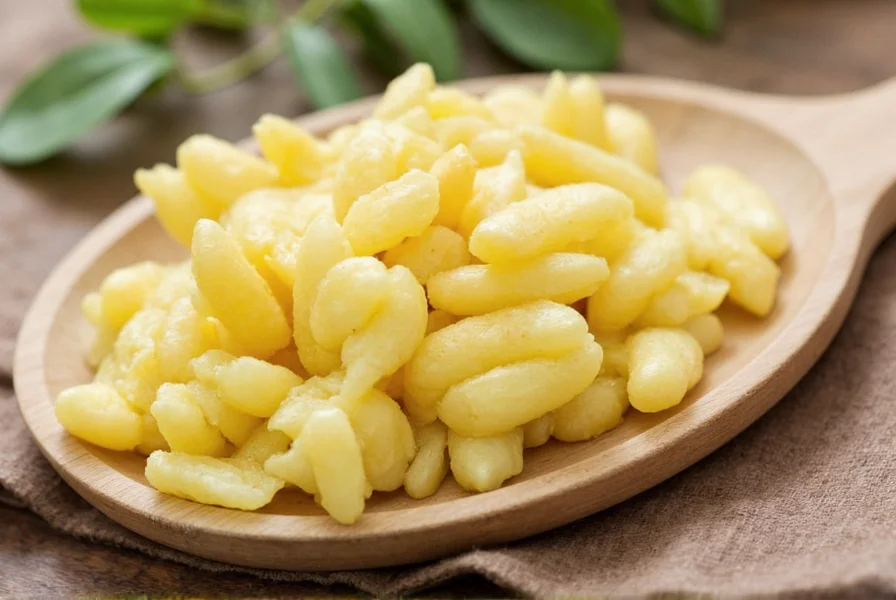Fermented ginger transforms the familiar rhizome into a powerhouse of enhanced properties through the magic of microbial activity. While raw ginger contains valuable compounds like gingerols, the fermentation process converts these into more bioavailable shogaols and creates probiotic cultures that multiply its benefits. This traditional preparation method, used for centuries across Asian cultures, unlocks applications you might not find with regular ginger.
Digestive Health Applications
One of the most well-documented fermented ginger uses involves digestive support. The probiotics created during fermentation work synergistically with ginger's natural compounds to soothe gastrointestinal distress. Unlike raw ginger which can sometimes irritate sensitive stomachs, fermented ginger provides gentler relief for:
- Occasional indigestion and bloating
- Morning sickness during pregnancy (consult your healthcare provider first)
- Post-meal discomfort
- Supporting gut microbiome balance
A 2022 study published in the Journal of Functional Foods found that fermented ginger extract demonstrated 37% greater effectiveness in reducing gastric discomfort compared to non-fermented ginger, thanks to the increased concentration of bioactive compounds and probiotic content.

Culinary Versatility Beyond Basic Cooking
Fermented ginger's unique flavor profile makes it invaluable in the kitchen. The fermentation process mellow the sharp heat of raw ginger while developing complex umami notes. Professional chefs and home cooks alike utilize it for:
| Culinary Application | How to Use | Recommended Amount |
|---|---|---|
| Salad dressings | Mince finely and blend with vinegar, oil, and herbs | 1-2 tsp per serving |
| Marinades | Combine with citrus and herbs for meat or vegetable marinades | 1 tbsp per cup of liquid |
| Fermented beverages | Add to kombucha or water kefir during second fermentation | 2-3 slices per 16oz bottle |
| Preserving | Include in pickling brines to enhance preservation | 3-4 slices per quart jar |
Natural Preservation Properties
Traditional food preservation methods often incorporated fermented ginger due to its dual action as both a preservative and flavor enhancer. The organic acids produced during fermentation create an environment hostile to harmful bacteria while the ginger's natural compounds inhibit mold growth. This makes it particularly useful when:
- Preserving fruits in syrup (adds flavor while extending shelf life)
- Creating naturally fermented pickles and relishes
- Extending the freshness of homemade dressings and sauces
- Preventing oxidation in fruit preparations
Skin Care Applications
The antioxidant and anti-inflammatory properties of fermented ginger translate well to topical applications. When properly prepared for external use, it can:
- Support skin's natural healing processes
- Provide gentle exfoliation through natural enzymes
- Help maintain skin's natural pH balance
- Contribute to a more even skin tone with regular use
For a simple fermented ginger skin toner, dilute 1 part fermented ginger liquid with 3 parts distilled water and apply with a cotton pad after cleansing. Always perform a patch test before full facial application.
Understanding the Science Behind Enhanced Benefits
The fermentation process fundamentally changes ginger's chemical composition. During fermentation:
- Gingerols convert to more potent shogaols
- New bioactive compounds form through microbial action
- Probiotic cultures develop that support gut health
- Nutrient bioavailability increases significantly
- Natural enzymes multiply, aiding digestion
These transformations explain why many traditional medicine systems prefer fermented ginger for certain applications. The process doesn't just preserve the ginger—it actively enhances its functional properties.
Safety Considerations and Proper Usage
While fermented ginger offers numerous benefits, proper usage matters:
- Start with small amounts to assess tolerance
- Those on blood thinners should consult healthcare providers
- Diabetics should monitor blood sugar as it may affect levels
- Always use food-grade containers for home fermentation
- Discard if mold appears or unpleasant odors develop
Homemade fermented ginger typically remains potent for 3-6 months when properly stored in the refrigerator. Commercial products should display clear expiration dates and refrigeration requirements.
Practical Integration Into Daily Routine
Incorporating fermented ginger into your daily life requires minimal effort. Try these simple approaches:
- Add a small slice to your morning tea or water
- Include in smoothies for digestive support
- Use the brine as a base for salad dressings
- Chew a small piece before travel to prevent motion sickness
- Apply diluted brine to skin as part of your evening routine
The versatility of fermented ginger means you can find applications that fit seamlessly into your existing habits rather than requiring major lifestyle changes.
Frequently Asked Questions
What's the difference between fermented ginger and regular ginger?
Fermented ginger undergoes a microbial transformation that converts gingerols to more bioavailable shogaols, creates beneficial probiotics, and develops new bioactive compounds. This process enhances both the digestive properties and nutrient absorption compared to raw ginger, while mellowing the sharp heat into more complex flavor notes.
How much fermented ginger should I consume daily for digestive benefits?
For digestive support, most traditional practices recommend 1-3 small slices (about 1/4 to 1/2 inch thick) before or after meals. Alternatively, 1-2 teaspoons of the fermented liquid can be diluted in water. Start with smaller amounts to assess tolerance, then gradually increase as needed. Consistency matters more than quantity for optimal digestive benefits.
Can I make fermented ginger at home safely?
Yes, making fermented ginger at home is straightforward and safe when following proper techniques. You'll need fresh ginger, non-chlorinated water, and a small amount of salt or starter culture. Use clean, food-grade containers, keep the ginger submerged in liquid, and store at room temperature away from direct sunlight during fermentation. After 7-14 days, transfer to refrigeration. Discard if you notice mold or unpleasant odors.
Does fermented ginger help with nausea relief?
Research suggests fermented ginger may provide more effective nausea relief than raw ginger due to enhanced bioactive compounds and better absorption. The probiotics also support gut health, which can address underlying causes of nausea. Many users report chewing a small piece of fermented ginger or drinking diluted brine provides relief from motion sickness, morning sickness, and post-operative nausea. However, consult your healthcare provider for persistent nausea issues.
How long does homemade fermented ginger last?
Properly prepared and stored homemade fermented ginger typically remains safe and effective for 3-6 months in the refrigerator. The cool temperature slows fermentation while preserving beneficial compounds. Always use clean utensils when handling to prevent contamination, and ensure the ginger remains submerged in liquid. Discard if you notice mold, off odors, or significant color changes beyond the normal golden hue.











 浙公网安备
33010002000092号
浙公网安备
33010002000092号 浙B2-20120091-4
浙B2-20120091-4